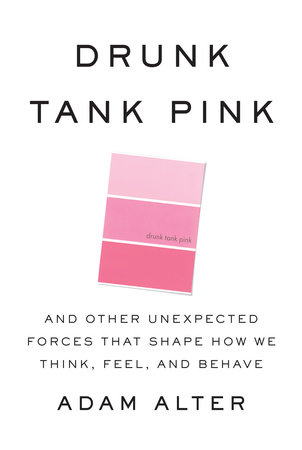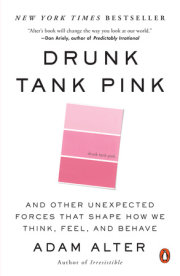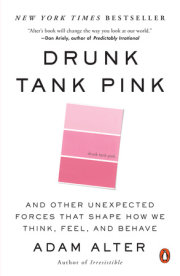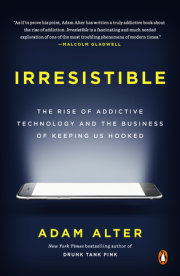"Alter not only explains the source of many cognitive quirks, but convincingly argues that comprehending them affords a better understanding of broader behaviors, from cyclical poverty to altruism... In Alter's hands, case studies take on new life... fluently moves between psychology, medicine, and cultural history, offering surprises to readers at many levels of expertise."
—Publishers Weekly
"Solid, down-to-earth insights into why we think, feel and act the way we do."
—Kirkus
"In this fascinating book, Adam Alter tells us about the forces that shape our thoughts and actions. More than you would ever imagine, your life is influenced by factors such as the first letter of your name, the average climate of our country, and whether you are in the presence of the color pink. With remarkable clarity and subversive humor, Alter presents a radical new perspective on human nature."
—Paul Bloom, author of How Pleasure Works
"Adam Alter has collected the most wonderfully strange and surprising nuggets of recent psychological research in one book. I guarantee you'll be want to share the incredible anecdotes in Drunk Tank Pink with friends."
—Joshua Foer, New York Times bestselling author of Moonwalking with Einstein
"Drunk Tank Pink is a smart and delightful introduction to some of psychology’s most curious phenomena and most colorful characters."
—Daniel Gilbert, New York Times bestselling author of Stumbling on Happiness
"Reading Adam Alter's book will change the way you look at our world. Seemingly banal things will begin to mean more than you ever realized."
—Dan Ariely, New York Times bestselling author of Predictably Irrational
"You'll laugh, you'll gasp, you'll shake your head in disbelief as Alter shows you that we are all, to some degree, balls in a giant pinball machine. If you want to see the bumpers—and regain some control of your destiny—read this delightful book."
—Jonathan Haidt, Author of The Righteous Mind
"A fascinating compendium of the hidden currents that influence our thoughts, beliefs, and actions."
—Gary Marcus, New York Times bestselling author of Guitar Zero







